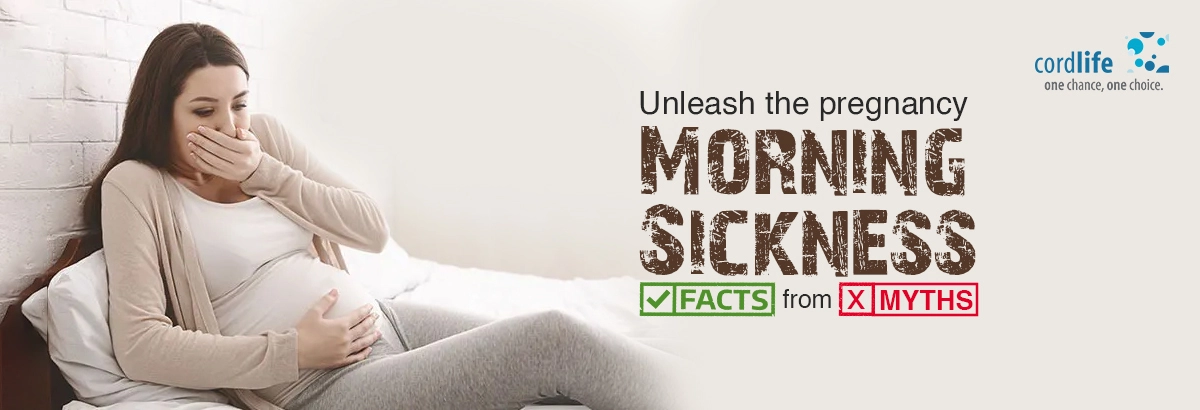Table of Contents
As you embark on your motherhood journey, you’re already experiencing changes, such as tender breasts and frequent bathroom trips. Although there’s nothing of these that you can’t handle, until you wake up and start feeling dizzy, queasy, and start vomiting. Such a condition is known as morning sickness. A pregnant woman suffering from morning sickness is likely to feel nauseated, vomit, lose appetite, depressed, and anxious.
At the same time, there are false beliefs associated with morning sickness.
Find out the truth about pregnancy morning sickness and break the myths.
Myth: Morning Sickness Only Occurs in the Morning
The fact is: Morning sickness is not just a morning affair. According to the severity of the condition, It may strike you at any time of the day, during the first three months of pregnancy. In the first trimester, you may even feel puckish after eating spicy, fattening, or fried foods. The process can be extremely challenging at times.
Myth: Morning Sickness is a Rare Occurrence
The fact is: The Morning sickness is the most common first-trimester pregnancy symptom. This is the result of a rise in hCG hormones. Approximately half to two-thirds of you will be suffering from the symptoms of morning sickness by the 6th week. The fog of morning sickness is expected to fade in the second trimester. However, 1 in 5 of you may experience it during the second trimester. There are, however, some of you who experience the same nausea after giving birth.
Myth: It Can Harm Your Baby Developing Inside You
The fact is: If you vomit severely and uncontrollably, to the extent that you’re unable to keep anything in your stomach you may feel dehydrated and start losing weight. Consequently, both dehydration and weight loss may be harmful to the fetus.
Myth: It May Mean You’re Pregnant With Twins or More
The fact is: Ultrasound scans will tell you whether you have twin babies inside your womb or multiples. However, some studies have revealed that severe nausea and vomiting are associated with carrying twins or more in your womb.
Myth: It May Mean You’re Pregnant With a Baby Boy
The Fact is: There is no direct correlation between morning sickness and the gender of your baby, however a study of two-thousand five hundred and forty-three mothers yielded reports of women gestating a female foetus due to the prevalence of severe nausea and vomiting during pregnancy (NVP).
Myth: Eat Less to Relieve
The Fact is: It worsens if you don’t eat much or have an empty stomach. Moreover, eating less may impact the baby’s overall growth inside you. The most effective way to ease morning sickness is to eat low-fat foods, such as crackers or cereal. Including six mini-meals throughout the day in your first-trimester pregnancy platter is a good idea. Ginger can also be your best friend. Adding a dash of ginger to a cup of tea or having ginger and oats cookies is the way to begin your day during the early stages of your pregnancy. Additionally, taking vitamin B6, complimentary doctor-recommended acupuncture and acupressure, and an anti-nausea medication might help.
Try not to let the pangs of nausea and vomiting impact your normal life during pregnancy. Understand everything about it and treat it medically as well as naturally to carry the baby inside you for nine months.
